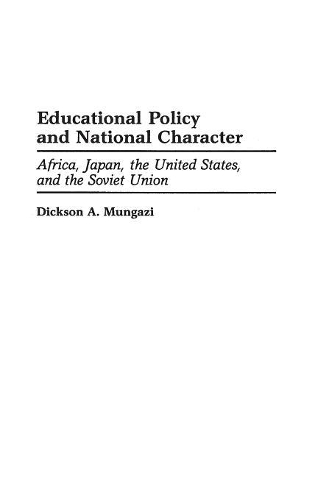
Educational Policy and National Character: Africa, Japan, the United States, and the Soviet Union
(Hardback)
Publishing Details
Educational Policy and National Character: Africa, Japan, the United States, and the Soviet Union
By (Author) Dickson Mungazi [Deceased]
Bloomsbury Publishing PLC
Praeger Publishers Inc
21st June 1993
United States
Classifications
Tertiary Education
Non Fiction
Educational administration and organization
379.2
Physical Properties
Hardback
248
Description
This study is an integrated approach to how the problems of education are related to those of national development in Africa, Japan, the United States, and the former Soviet Union. These four were selected because Africa represents the Third World; Japan the emerging powers, the United States, Western democracy, and the Soviet Union the socialist world. The study is based on the assumption that a detailed study of these four countries will help to establish the relationship that exists between the problems of education and those of national development. Nations are facing problems in their struggle for development because they are unable to resolve problems of education. While socialist nations seem to focus on the development of the state as a condition of seeking the development of the individual, Western nations seek the development of the individual as a condition of national development. That both systems are experiencing serious problems in both education and national development suggests that there must be a reexamination of policy strategies. This book will be of interest to political scientists and students of comparative education.
Reviews
The text is documented and well written and offers relevant references for the students focusing on the study of comparative education. Graduate level.-Choice, December 1993
"The text is documented and well written and offers relevant references for the students focusing on the study of comparative education. Graduate level."-Choice, December 1993
Author Bio
DICKSON A. MUNGAZI is Professor of Educational Foundations and History of Southern Africa at Northern Arizona University in Flagstaff.
